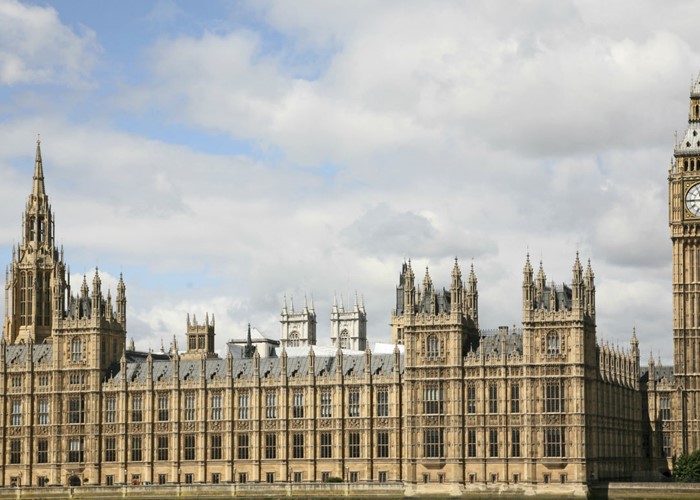10 great British brands sold off to foreigners

Tate & Lyle was bought this week by American Sugar Refining. Donna Werbner takes a look at other iconic British brands that no longer have the right to call themselves 'British'.
If you are reading this while enjoying a Kitkat and a cup of Tetley’s tea with a teaspoon of Tate & Lyle sugar in a Wedgwood teacup that you bought from Harrods, you might think you are doing something quintessentially British.
You’d be wrong.
The fact is, Kitkat is owned by the Swiss company Nestle, Tetley’s tea is owned by India’s Tata Group, Wedgwood was sold to an American private equity firm last year, Harrods was bought by the State of Qatar for £1.5bn in May, and Tate & Lyle was sold this week to American Sugar Refining for £211m.
Here, we take a look at some of the other great British brands who can no longer call the Queen their own:
1) Boots
Established in Nottingham in 1849 by John Boot, Boots was first sold to a foreign company in 1920 when Jesse Boot flogged it to the American United Drug Company. Part of Alliance Boots since 2006, it is now owned the Italian tycoon Stefano Pessina and the American private equity firm KKR.
2) Rolls Royce cars
Charles Rolls and Henry Royce started manufacturing cars in Derby in 1906, selling cars that are worth £71,100 today for just £890. In 1973, Rolls Royce Motors was bought by Sheffield engineering firm Vickers and 1998, it was sold to German company BMW.
3) Cadbury
John Cadbury began producing and selling tea, coffee and drinking chocolate in Birmingham in 1824, and in 1854 he and his brother received the Royal Warrant as manufacturers of chocolate and cocoa to Queen Victoria. Cadbury merged with drinks company Schweppes in 1960 and was bought by America firm Kraft this year for £11.5bn.
4) Bentley cars
In 1919, Walter Owen Bentley, a World War One captain in the Royal Naval Air Service, started manufacturing Bentley automobiles in Cricklewood, North West London. It was sold to Rolls Royce during the Great Depression in 1931 in a deal so secretive not even Bentley himself knew the true identity of the purchaser until the transaction was completed. Since 1998, the firm has been owned by German carmakers Volkswagen.
5) Jaguar
Motorcycle enthusiasts Sir William Lyons and William Walmsley manufactured the first Jaguar 2.5 litre saloon in 1935 in Coventry. In the early 1950s, Lyons invested heavily in motor racing in a bid to increase Jaguar’s appeal to ordinary motorists, resulting in historic victories for Jaguar at Le Mans in 1951 and 1953. In 1999, American conglomerate Ford Motors bought the company and then sold it during the recession to Indian firm Tata motors for £1.7bn in 2008.
6) Walkers crisps
Henry Walker started off as a pork butcher in Leicester – but after World War Two rationing of meat forced him to turn to another, additional form of revenue: the un-rationed potato. The company was so successful at making Walkers crisps that it kept its focus on potato chips when meat was de-rationed in 1954. Walkers was bought by Fortune 500 American firm PepsiCo in 1989 and is now worth around £436million. It still sells 10 million packets a day in the UK.
7) Smarties/Aero/Rolo/Fruit Pastilles
In York in 1863, Henry Rowntree and his brother Joseph founded Rowntree’s and began manufacturing chocolates. Rowntree's was responsible for iconic British Empire favourites like Smarties, Aero, Fruit Pastilles, Yorkie and Black Magic. In 1988, Swiss confectionary giant Nestle bought the company for $4.55bn and has dropped the Rowntree name from all packaging except Rowntree’s Cocoa and its famous Fruit Pastilles.
8) Mini
In the wake of the fuel shortage caused by the 1958 Suez crisis, the British Motor Corporation decided to design a new car to meet growing demand for small ‘German bubble’ cars. The Mini launched in 1959 and featured heavily in the iconic British film The Italian Job in 1969. It was sold along with Rover to German carmaker BMW in 1994.
9) Harry Ramsden
Harry Ramsden set up his first fish and chip shop in a wooden hut in West Yorkshire in 1928 and was so successful that, three years later, he was able to move into a ‘fish and chip palace’, complete with oak panelled walls and chandeliers. In 1999, the firm began expanding into motorway locations and in 2006 was sold to Swedish firm EQT Partners as part of a deal worth £1,822 million.
10) HP Sauce
Nottingham grocer Frederick Gibson Garton invented HP sauce in 1895. He called it HP because he’d heard a rumour that a restaurant in the Houses of Parliament was serving it to MPs - hence the label on the bottle (which shows a picture of the Houses of Parliament). Despite this continued emphasis on the British origins on the brand, HP sauce has actually been owned by the American food giant Heinz since 2005.
And finally...
Here at lovemoney.com, we’d like to doff our caps to brands that promote their British heritage and genuinely remain British, such as Yorkshire Tea, Hovis and Burberry. Please share your own favourites and memories of the days when the brands listed above were 100% British owned by commenting at the bottom of this article!
More: Four firms that actually care about customer service | The scam that could ruin the Olympic Games! | Make £225 switching your current account
Comments
Be the first to comment
Do you want to comment on this article? You need to be signed in for this feature